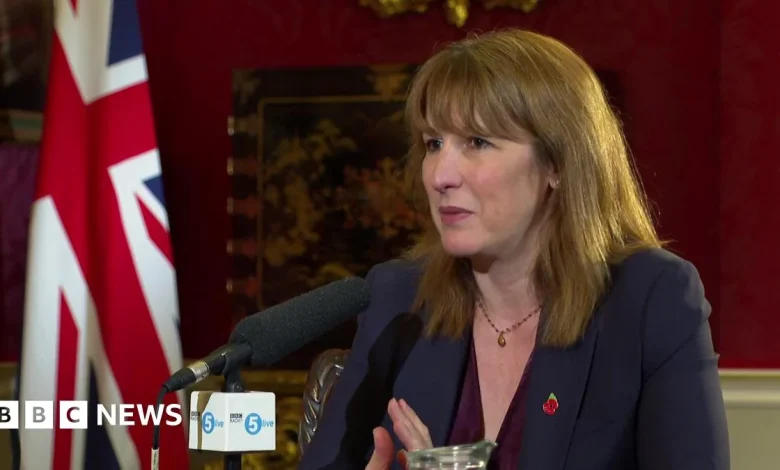Reeves tells BBC ‘difficult’ Budget ahead as she again refuses to rule out tax rises

We may get some clues on how Reeves plans to balance the bookspublished at 14:20 GMT 10 November
Faisal Islam
Economics editor
Image source, Getty Images
Today is an important day in the Budget timetable – the chancellor of the Exchequer receives back the first draft of the Office for Budget Responsibility (OBR) forecast, based on a set of confidential tax measures she communicated last week.
While speculation is rife, this is a draft and subject to change.
Nonetheless, when my colleague Matt Chorley sits down with Rachel Reeves, she will know what tax rises she is currently planning on going with.
I have long assumed that the favoured move would be to raise income tax and cut National Insurance at the same time. This would centre the central tax rise, not on pay packets, but on savings, pensions and rental income – income tax thresholds seem likely to be frozen too.
Reeves may have to reflect on bad news, if as has happened in the past, the Budget maths gap to fulfil her borrowing rules is not fully closed by planned measures.
The chancellor has had some better news, with fixed mortgage rates starting to fall again on expectations of renewed Bank of England rate cuts, starting next month.
Consumer confidence for the under 50s is starting to recover notably. The key economic growth figure for Q3, from July to September, is released on Thursday.
A previous chancellor once told me how the key “headroom” number moved £50bn in just one month, in his favour, almost apologising for the earlier gloomy tone. The chancellor’s dilemma is whether the tax rise speculation, and her own actual Budget medicine, may weigh on fragile British consumers and businesses.
We may get some clues on the balancing act live from Number 11.




